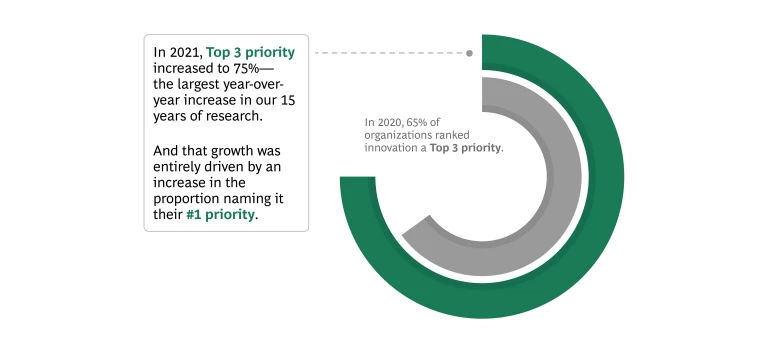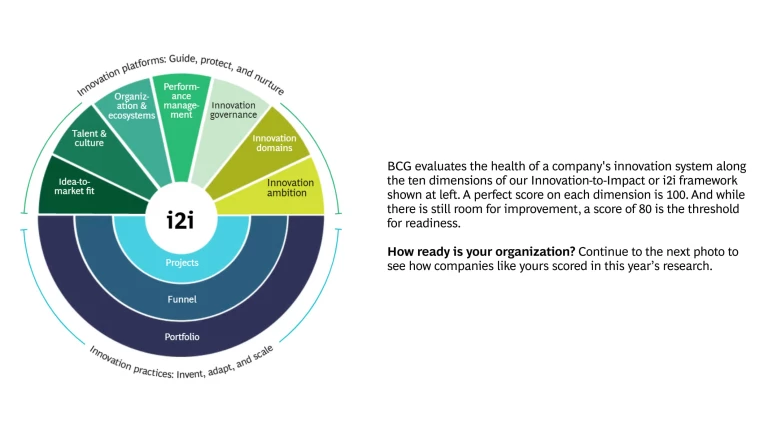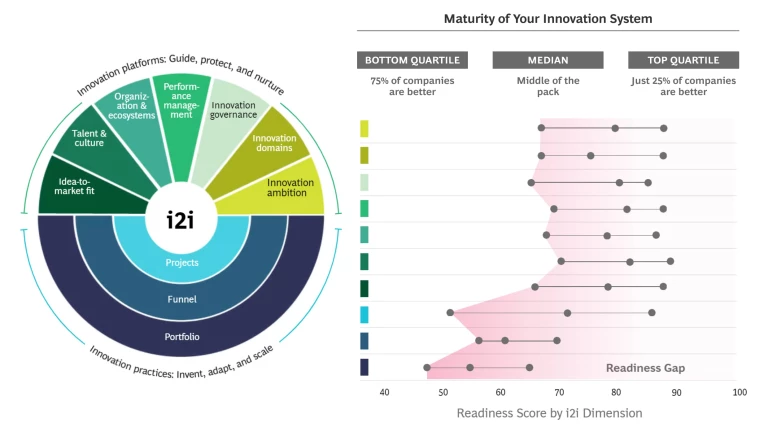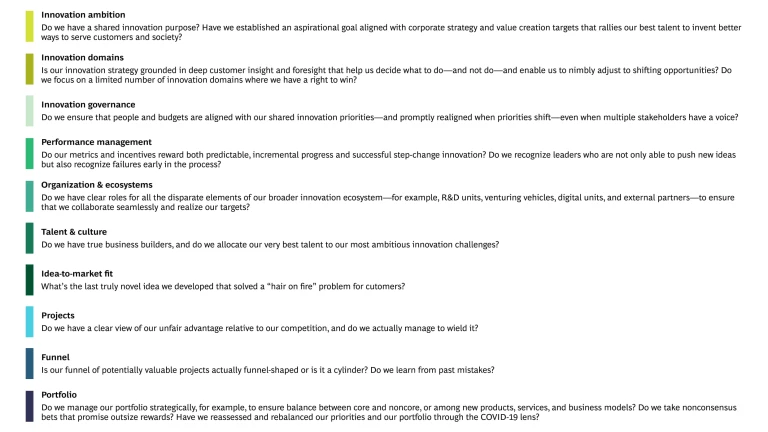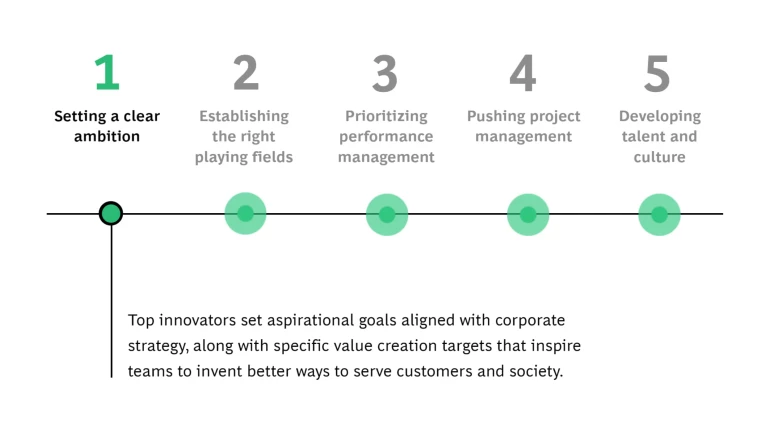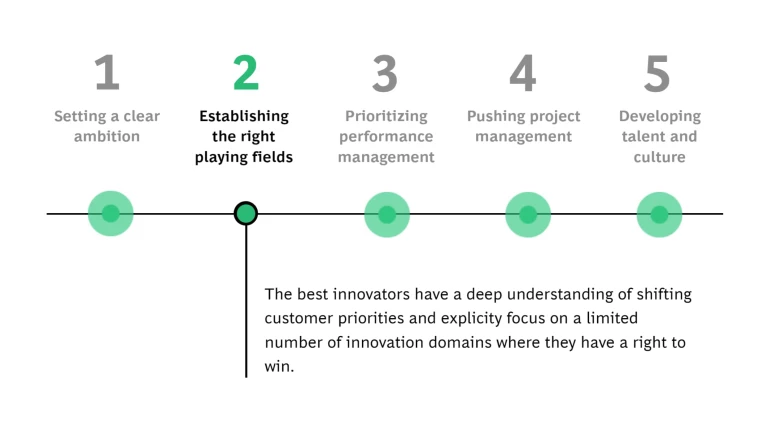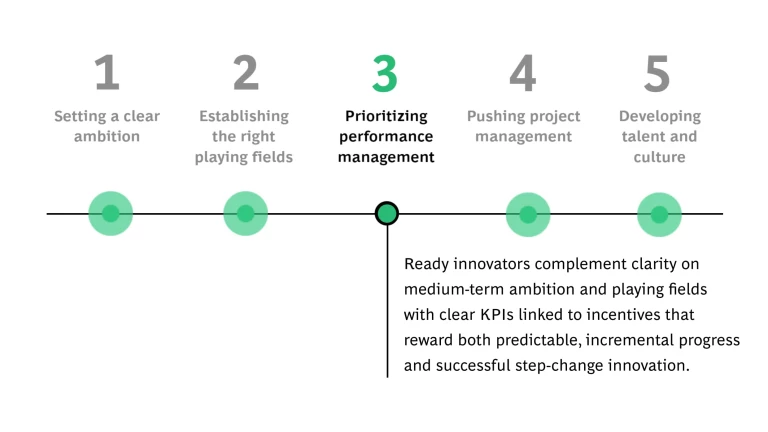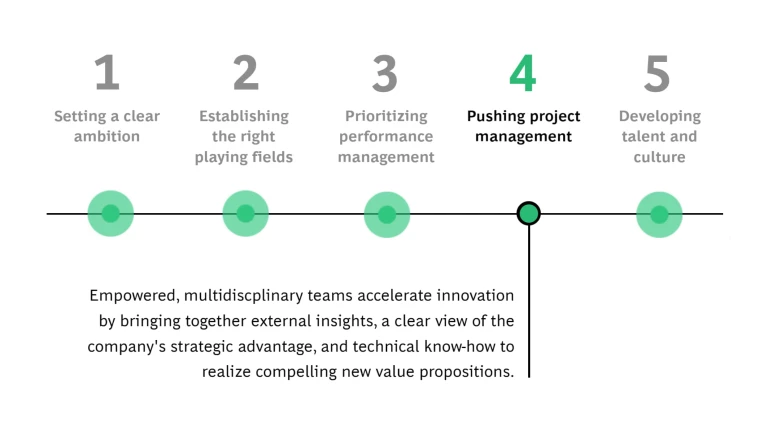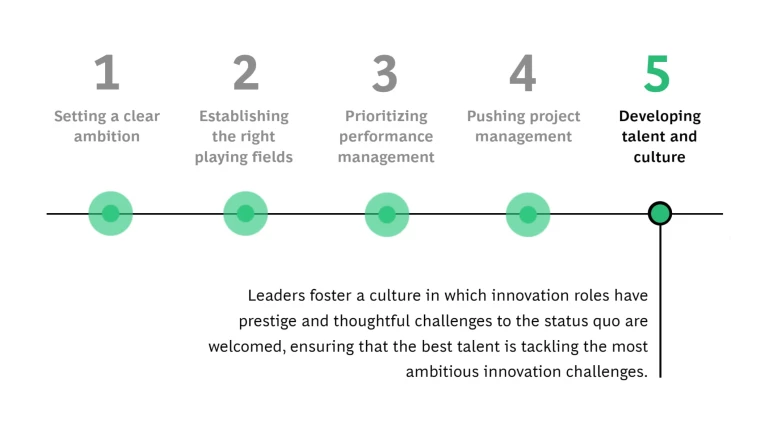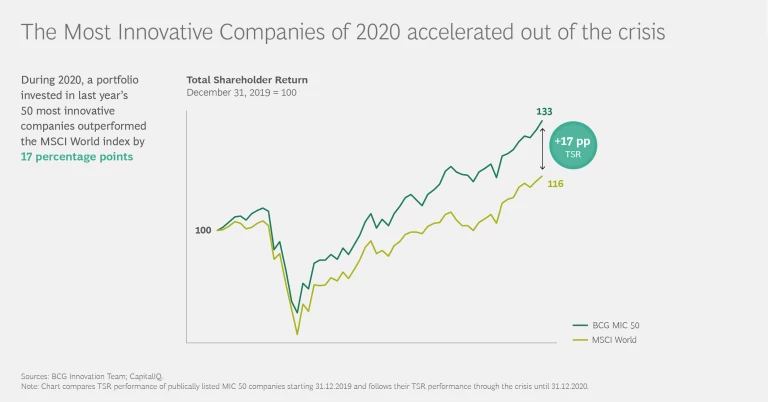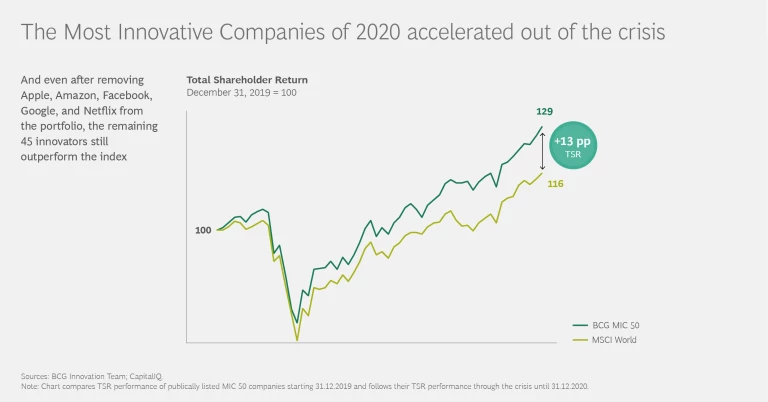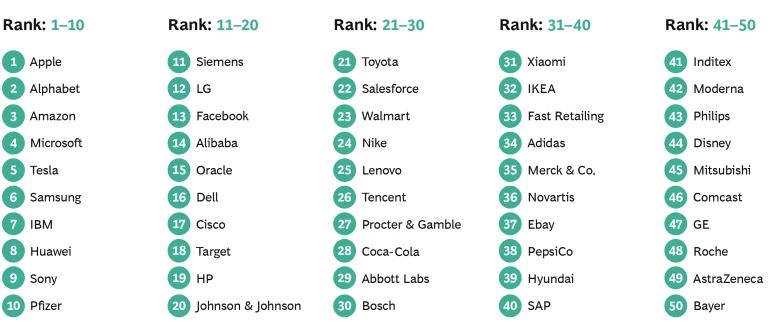Coming out of COVID-19, companies want—and need—to innovate. But too few are ready to rise to the challenge.
Successful innovation takes three things. Making innovation a priority. Committing investment and talent to it. And being ready to transform investment into results. So how are the most innovative companies doing?
Innovation priority is up.
Let’s start with the good news. The number of companies reporting that innovation is among their organizations’ top three priorities is up 10 percentage points in 2021 to 75%—the largest year-over-year increase in the 15 global innovation surveys BCG has conducted since 2005.
But only about half of companies are investing behind their aspirations.
Priorities are good, but commitment counts, too. And just under half of the companies in our research report are putting real resources behind their priorities. We call these companies committed innovators.
An organization can create real value only if its underlying innovation system is ready to translate priority and commitment into results. On this dimension, the news is sobering.
Many committed innovators face a big readiness gap.
This year, we asked respondents a series of questions that enabled us to use BCG’s innovation-to-impact benchmarking framework ( i2i by BCG ) to assess the readiness of their innovation systems. A perfect i2i score is 100—and only about a quarter of committed innovators scored 80 or above. The median committed innovator fell short of best practice on every i2i dimension, sometimes significantly. And by definition, if that’s how the median performer fared, half of committed innovators score even lower. You can explore the dimensions of the readiness gap below and in the first chapter of our Most Innovative Companies 2021 report: “ The Readiness Gap .”
Our analysis reveals that focusing on deficits in five of the ten i2i readiness areas are likely to have the greatest returns:
A focus on leadership and teaming can help close the readiness gap.
The five key elements of readiness highlighted above can be distilled into two overarching themes—leadership and teaming—each of which is the subject of a chapter of this year’s full Most Innovative Companies report.
Leadership.
Leading innovators drive results from a clear CEO agenda. And unambiguous C-level ownership distinguishes top performers from underperformers as measured by share of sales from new products and services. What should be on the CEO’s innovation agenda? We examine this question specifically in “ The CEO Innovation Agenda ,” the second chapter of this year’s report.
Teaming.
It’s also impossible to achieve innovation readiness without a strong link—indeed, a virtuous cycle of collaboration—between product development and facing functions. Establishing this cycle and keeping it active are perennial challenges. In fact, this year the global innovation executives we surveyed cited it as the top obstacle to achieving higher returns on innovation investment. Explore the stories of ten leading innovators that successfully maintain innovation’s connection with the marketplace in the third chapter of our Most Innovative Companies report: “ How Leaders Bring Product and Sales Teams Together .”
The rewards of readiness are significant.
Superior readiness drives value creation—and resilience. Consider BCG’s annual roster of the world’s 50 most innovative companies. The 50 most innovative companies of 2007, just prior to the Great Financial Crisis, delivered total shareholder returns between 2007 and 2012 that were 4 percentage points higher per year than the market.
And the story during COVID-19 is similar. Our pre-pandemic 50 most innovative companies of 2020 have outperformed the index by a staggering 17 percentage points in the past year—and even if you remove high-flying tech giants (Apple, Google, Amazon, Facebook, and Netflix), top innovators’ outperformance is still 13 percentage points.
And this year’s readiest innovators? Meet 2021’s 50 Most Innovative Companies.
Next Steps for Your Readiness Journey
1. Explore How BCG Helps Clients on Innovation and Delivery
2. Learn More about BCG’s i2i Innovation Benchmarking Tool
3. Contact the Authors
Meet the Authors
Americas


Alumnus
Michael Ringel

Alumnus
Chris Stutzman
Europe

Alumnus
Ramón Baeza

Alumnus
Konstantinos Apostolatos


Alumna
Sandra Deutschländer


Alumnus
Matthias Schmidt
